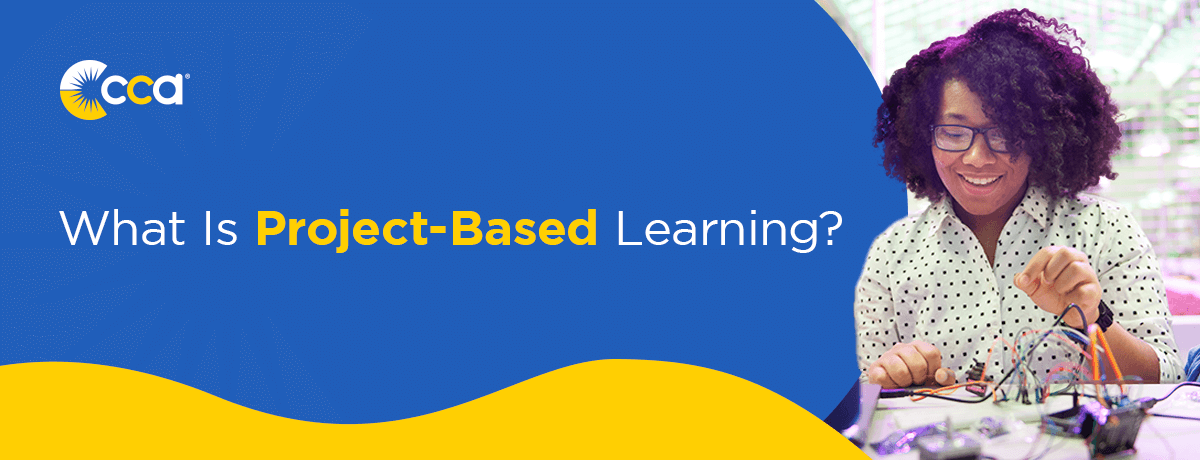Enrollment Now Open for Second Semester. Click Here
Enrollment Now Open for Second Semester. Click Here

If you’re somewhat familiar with project-based learning (PBL), you know this educational framework is a departure from the norm. You may wonder about the purpose of project-based learning and whether it’s effective. We’ll answer these questions and more as we explain this unique approach to teaching and how it can engage students in exciting ways.
Project-based learning is an instructional method in which students complete projects to help them grapple with real-world issues and personalize their learning to gain relevant knowledge and skills. These projects tend to be substantial, taking place over a week, unit, or even a whole semester. They typically culminate in some sort of deliverable, such as a presentation.
This model is a departure from traditional instruction, which tends to involve more direct teaching and test students’ information retention. The 20th-century educational theorist John Dewey largely gets credited with challenging the status quo of students passively receiving knowledge from teachers. Instead, he argued that students should play an active role in their education. This attitude laid the groundwork for PBL. Project-based learning does not fit the standard educational mold, but it holds great promise for helping modern students succeed.
A helpful way to understand project-based learning is to look at the core elements that characterize this instructional model. Consider these defining aspects of PBL.
The PBL model has gained popularity because it can increase student engagement and facilitate their achievement. More specifically, PBL can benefit students in the following ways.
There are also some advantages of the PBL model when it comes to deployment. Teachers can implement this learning model in person or through virtual learning. With modern learning technology, students can still collaborate with peers, conduct research, and even share their work publicly, all from their homes. This digital format reflects how many students are likely to engage with the world in their future academic and professional careers.
To illustrate what PBL looks like in action, let’s look at a couple of examples from our Commonwealth Charter Academy student body.
The CCA Makers Society engages in PBL through various projects, such as their bottle rocket challenge. Students design and create bottle rockets that they then shoot off. Throughout this activity, students learn about relevant scientific concepts, like Newton’s third law of motion, and exercise their creativity. The Makers Society has also completed other projects that involved coding, circuitry, sewing, and more.
Individual students can take the initiative to start projects, too. One CCA student with an interest in 3D printing used his interests and abilities to create face shields he could donate to local hospital workers during the COVID-19 pandemic. He had to solve problems, like finding available, sterile materials and deciding what design to use. Other members of the robotics team got involved, as well.
If you want to see more examples of PBL in action, you can find lots of real-life examples and ideas online. Check out Iowa State University’s PBL strategies for more insight into all the ways you can approach PBL.
At CCA, we believe every student deserves a personalized learning path that accounts for their different interests and learning styles. These paths can include project-based learning tasks that engage students in meaningful work. Our Honors program especially emphasizes PBL’s role in keeping students engaged and challenging them to take their learning a step further.
Project-based learning can take many shapes, but at the heart of this educational model is inviting students to engage with the world around them and make meaningful contributions right now. School can be so much more than a place where students passively receive knowledge. Thinking outside the classroom now will prepare students to make a positive difference in the world of tomorrow. Learn more about how CCA successfully equips students for the real world by contacting us today.
Enrollment Now Open for Second Semester. Click Here